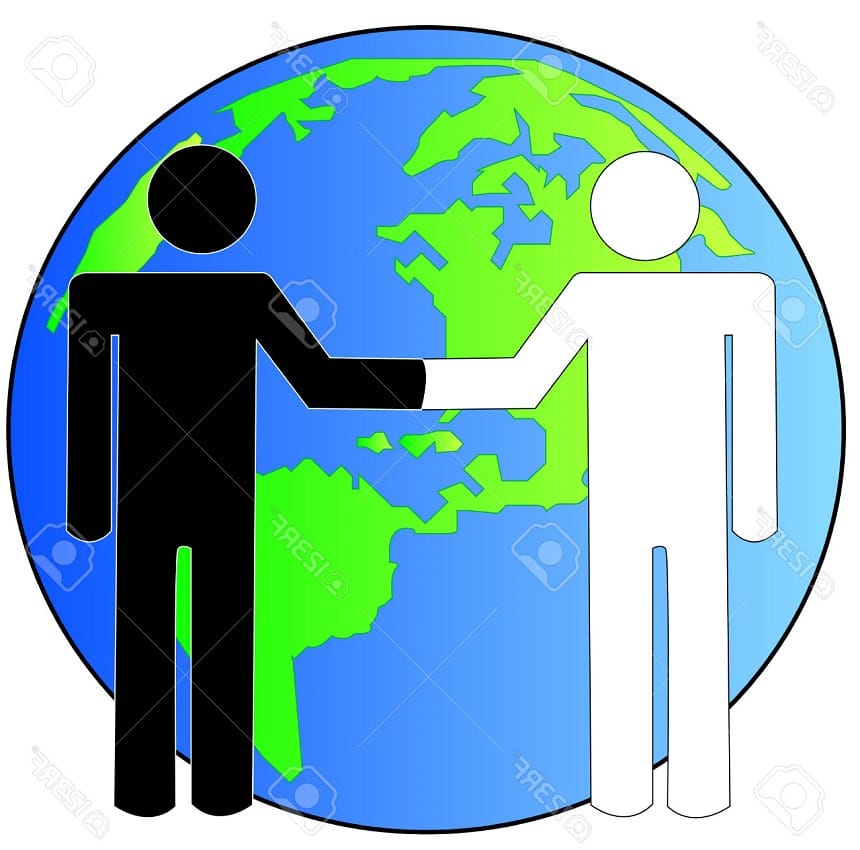
Globalization and multicultural teams essay
Numerous transformations caused by globalization of the world economy require a new vision problems, new concepts, new theories and new approaches. Globalization dictates the “rules of the game” and influences the activity of economic organizations and people, creating new mechanisms for economic and social development. Globalization has lead to increasingly close relationship of global and local national systems, emergence of global capital and labor market. This leads to an objective need to consider the operation of organizations in a global context, taking into account the interrelationship and interdependence of different parts of the world. International markets creates new patterns of interaction that go beyond national borders and penetrate into all societies and regions of the world.
One of the key problems in the modern world is how to build positive attitudes and relations between members of different cultures, including at work. While globalization has led to creation of international companies, international teams are widely spread too, and in this context it is necessary to determine how to organize their effective work. Such companies are influenced by cultural factors, and cross-cultural differences can become obstacles to the communication and work. That is why it is necessary to develop positive attitudes to cross-cultural differences, that is to overcome the cultural isolation, which generates negative reactions. Adaptation and integration into a foreign culture is based not only on knowledge of the language, customs, norms and values, but on a personal interest in understanding its values and attitudes, close emotional contact with its representatives. This is possible if a person lives a long time in another, different from the native culture, has close friends there and is actively involved in public life or brought up from childhood in a multicultural environment. Nevertheless, cases of genuine mutual understanding in intercultural communication are extremely rare because they require extraordinary personal qualities, the ability to sensitively and creatively perceive other cultures.
According to research by Professor Nigel J. Holden, held at the beginning of the XXI century, the culture should be viewed as an organizational resource, and cultural differences as a form of organizational knowledge, calling for the solution of ethnic cultural issues. The basic components of a modern international management include interactive global information networks, international teams and international cooperation. In this regard, today’s managers from practitioners have become analysts, who can manage complex combination of projects, people, resources and problems. (Drucker P., 1996). Peter Drucker pointed that for managers in many countries the main challenge is to increase the productivity of knowledge and training of professionals working with him.
Management of multicultural teams is a key task of cross-cultural management, which Nigel Holden proposes to consider as management of various cultures. The concept of culture is not logical to interpret as a manifestation due to national or ethnic characteristics, as well as “the field of general knowledge and a unified system of values that permeate the organization inside and out, without a sufficient understanding of clear, sharp, defined borders” (Nigel Holden, 2005). Thus, in the new economy, culture is really becoming one of the resources of the organization.
The idea of considering culture as a resource of organization has helped experts of the Vienna School of Economics – Fink and Meyerhof – to develop the resource company model that takes into account the factor of culture. The model is based on the idea that any company is created to address specific problems, and cultural factors are internal stimuli that influence the management of the firm and its activities. With the strategic assets a company creates customer value. Among those are: physical (location, equipment), financial (capital structure, credit), intangibles (people, organizational culture). In this model, the cultural aspect is regarded as one of the factors which affect the efficiency of the company and help to achieve competitive advantage.
So it is important to point out the formation of new forms of socio-economic groups – multicultural teams, which bring together representatives of different national cultures for the most effective and creative solutions to pressing challenges in a globalizing world economy. Economic behavior of multicultural groups, their potential, which constitutes the basis of highly efficient work, largely depends on the use of “cultural leverage” or cultural component of the group.
Among the researchers, involved in the study of economic behavior of multicultural groups and the influence of socio-cultural norms and values on economic behavior, there are three major points of views, depending on how they see the importance of socio-cultural component. According to the first point of view, the organization is generally “not constrained by the culture,” and modern technology, strategic orientation outweigh the differences in national context, leading to global standards of management practice in general, and economic behavior in particular. Others believe that the organization is influenced by the culture, and that economic behavior depends on a collectively shared values and belief systems. The representatives of this idea believe that the economic behavior of the socio-economic groups (organizational teams) is determined by characteristics of national culture. The third point of view combines certain elements of the first two approaches, and its supporters argue that the interaction between the market and the need for national socio-economic institutions (such as trade unions, education, legislation and models of industrial relations) influence management of organizations in general and on economic behavior in particular. A key issue is improvement of the effectiveness of the economic behavior of multicultural groups, based on the use of “cultural component” of the group members. To fully realize the great potential of multicultural groups it is necessary to use all of the various elements of the group performance, with a particular attention to cultural diversity of team members, which can give a competitive advantage.

